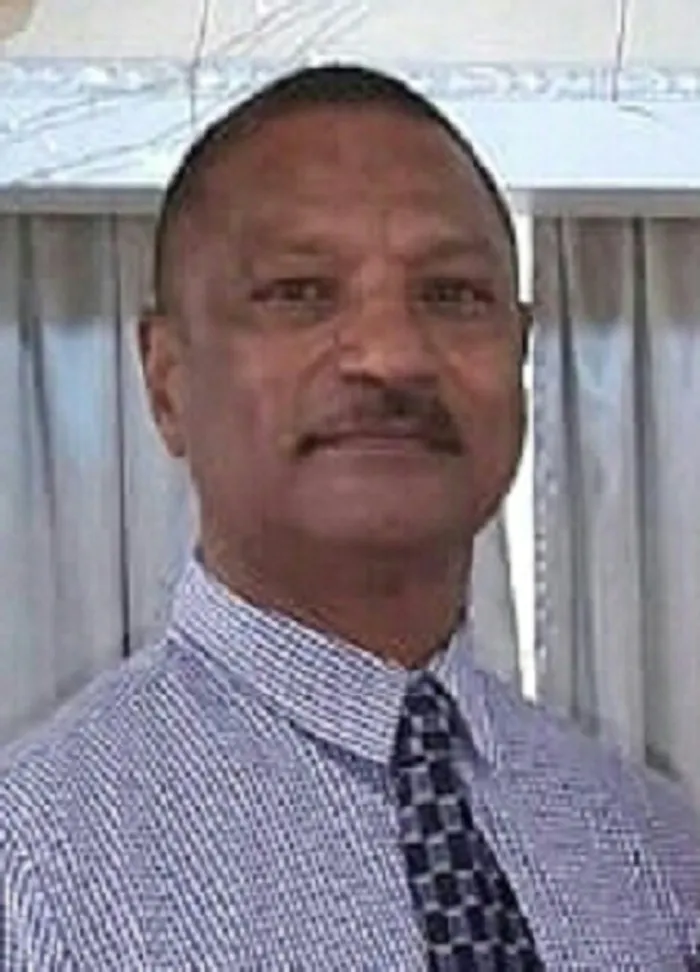Fairmount High’s principal retires

Terrence Klassen, principal of Fairmount High School, has retired.
As he retired after 41 years at Fairmount High School in Grassy Park, principal Terrence Klassen tipped his hat to the community for their support.
While Mr Klassen had officially retired on September 30, he told Southern Mail he was “still volunteering at Fairmount teaching maths and clearing out the office”.
Mr Klassen said when he started teaching,, his first post was at Ned Doman, which was then called Sinton Junior. A year later - in 1981 - he moved to Fairmount and a number of promotions, was appointed principal in 1994.
Mr Klassen said thre had been many highlights during his tenure at Fairmount, one of which was when he found himself among 25 principals selected to discuss the future of education with the then President Nelson Mandela.
Other highlights, he said, included being named the top Biology teacher in the country for Biology Higher Grade and the fourth best for Biology Standard Grade in 1986; and the school’s best matric pass rate of 96,4%. This, he said, “is significant as we do not select/ screen our learners. We work strictly on first come first serve.”
He also listed a number of other academic achievements as well as “representing the Western Province at the National Moot Court Competition; winning the A section Athletics and developing many USASSA and WP Athletes”.
Another milestone in the lives of the Fairmount pupils, Mr Klassen said, was the development of the school fields in partnership with the City of Cape Town. He added to thel list: “Establishing the Grazlow Park initiative to include all the primary and high Schools in the Grassy Park, Parkwood, Lotus River, Zeekoevlei, Pelican Park and Wynberg areas to improve the quality of educational leadership and management.”
Over the years, Mr Klassen said he had developed a strong relationship with staff. “ As many of us started at the school before we got married, we got to know each other's spouses and children,” he said.
Mr Klassen’s farewell, held on September 29, was organised by the staff and former pupils Denzil October and Hilton Meyer. “I was really surprised as my wife, mom, daughter and granddaughter were present,” Mr Klassen said. “They kept the secret from me. My son was in Johannesburg at the time.”
Asked what he would be doing in future Mr Klassen said: “I will have more time to follow the projects around the house, respray my car, travel, hike, camp and get back into motorcycling.”
However, he said: “ have not made any hard and fast plans for next year. I have had some offers of doing management and leadership training, maths promotion projects, expanding school projects, developing various partnerships especially with businesses as our school is in Quintile 5, with the affluent schools. I will go where God directs me.”
Mr Klassen said he enjoys travelling and said he had been to America, England, Thailand, Vietnam, Turkey and Egypt. Now that he had some more free time, he looked forward to “hiking, camping, travelling local and abroad, spending time with family, and volunteering at church”.
He added: “I am very grateful to my wife Desiree and my two children Desmine and Justin who have been very patient and supportive of me over the years. Without their understanding I would not have been the teacher and principal I was. I am grateful to my parents Harold and Brigette for my upbringing and instilling the values and importance of faith in my life.
“I also have three grandchildren, Micah, Ethan and Cloe,” said Mr Klassen.“
He thanked the pupils’ parents and grandparents “for allowing me and the Fairmount staff to be part of their children's education over the years so that the children could achieve their dreams, become economically active and make a difference for generations to come.”
Asked what his advice would be for his successor, Mr Klassen said: “Get to know the needs of the community you are serving and find ways to address them so that the learners are happy, have hope for the future and can achieve their dreams. In that way you are making a difference. It is not about the competition between schools, though this is healthy it must not be at the exclusion of the less fortunate.”